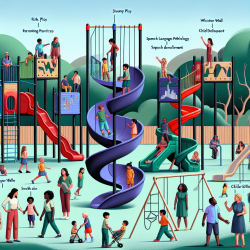As practitioners dedicated to enhancing the lives of children and adults with autism, it's crucial to continually refine our approaches based on the latest research. The study "Autism in Adulthood: Clinical and Demographic Characteristics of a Cohort of Five Hundred Persons with Autism Analyzed by a Novel Multistep Network Model" provides invaluable insights into the adult autism spectrum disorder (ASD) population. By examining the findings and recommendations of this study, we can improve our practices and encourage further research in this field.
Key Findings and Their Implications
The study, conducted by Keller et al., analyzed 500 adults with autism, revealing critical information about delayed diagnoses and the lack of specific interventions at a young age. This has led to a "lost generation" of adults with ASD who now require effective psychosocial interventions. The Multistep Network Model used in the study offers a comprehensive approach to diagnosing and treating ASD in adulthood.
Delayed Diagnosis and the Need for Early Intervention
One of the study's significant findings is that delayed diagnosis contributes to severe functional regression in adults with ASD. Early and accurate diagnosis is paramount for implementing timely interventions that can significantly improve long-term outcomes. As practitioners, we should advocate for routine screening and early diagnosis protocols to prevent such delays.
Comprehensive Assessment Using the Multistep Network Model
The Multistep Network Model emphasizes a thorough, multidisciplinary approach to assessment, involving family members, social workers, teachers, and clinicians. This model ensures a holistic understanding of the individual's needs and strengths, leading to personalized rehabilitation and enablement programs. Incorporating this model into our practice can enhance the accuracy of our assessments and the effectiveness of our interventions.
Addressing Psychopathological Co-Occurrences
The study highlights the high prevalence of psychopathological co-occurrences among adults with ASD, including depression, anxiety, and other psychiatric disorders. Effective intervention programs should address these co-occurrences to improve the overall quality of life for individuals with ASD. Practitioners should be well-versed in identifying and managing these conditions alongside autism-specific interventions.
Recommendations for Practitioners
- Advocate for Early Diagnosis: Encourage routine screenings and early diagnosis to prevent the detrimental effects of delayed intervention.
- Adopt Comprehensive Assessment Models: Implement the Multistep Network Model to ensure a holistic and accurate understanding of each individual's needs.
- Address Co-Occurring Conditions: Develop intervention programs that also target psychopathological co-occurrences to improve overall outcomes.
- Focus on Personalized Rehabilitation: Create individualized enablement programs that cater to the unique strengths and challenges of each person with ASD.
- Promote Employment Preparation: Integrate vocational training and employment preparation into intervention programs to enhance social integration and self-reliance.
Encouraging Further Research
The findings from this study underscore the importance of continued research into the unique needs of adults with ASD. Practitioners should not only apply these insights but also contribute to ongoing research efforts. Collaboration with research institutions and participation in studies can help refine our understanding and improve the services we provide.
To read the original research paper, please follow this link: Autism in Adulthood: Clinical and Demographic Characteristics of a Cohort of Five Hundred Persons with Autism Analyzed by a Novel Multistep Network Model.










